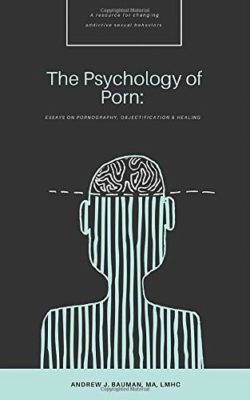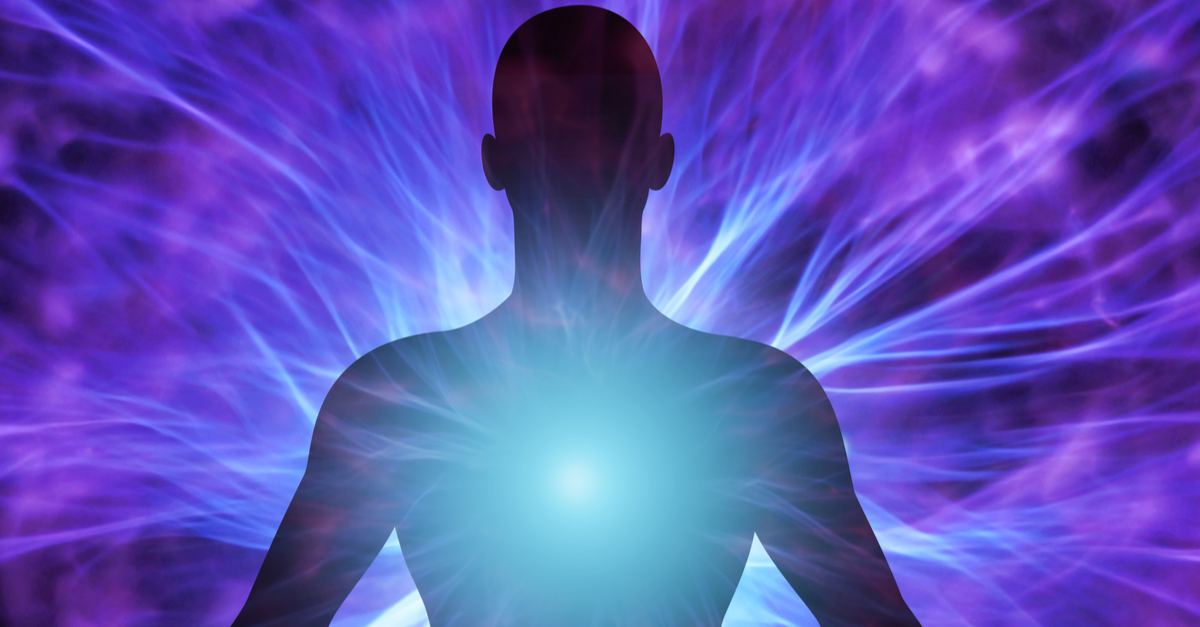 By Andrew Bauman
By Andrew Bauman
After a few years as a therapist, I realized that a strictly narrative-based approach toward counseling limited the depth of the work that I was able to do with my clients, especially those who were struggling with unwanted sexual behaviors. I started training with a somatic therapist to step into healing within my own body, knowing I could not lead my clients to a place I was unwilling to go myself.
During one of the first somatic groups I was a part of, I was quickly overtaken by continued grief of the loss of my son, Brave. The therapist guided me to lay on the floor. As the other folks in the group surrounded me, he talked me through a visualization of my son, as we talked and held onto each other. I wept bitterly, aggressively. He had the other people hold me as I wept. As the therapist felt for trauma in my body, he found it in my belly. As he dug into my belly with strong hands, I wailed even louder. This healing of grief was different; it was embodied. I was able to bring my body to my grief in a new way, and this new level of vulnerability opened a door for me to allow others to care for the young and tender places within me that needed love. I knew I needed to bring this new way of engaging trauma and heartache back to my clients.
I see bodily disconnect in nearly all of the sexual abuse survivors and porn users I work with. As a porn user for 13 years myself, I had to split with my own body in order to participate in using pornography. If I told myself the truth – that I was contributing to sex trafficking, exploitation, and violence against women – it would have been much more difficult for me to achieve orgasm. Instead, I taught my body how to disconnect and to become numb to help facilitate my pattern of arousal. I had to escape my own body. I spent 13 years disconnecting from the truth of my body, becoming disembodied, and finding ways to exist outside of myself.
I now believe liberation from unwanted sexual behaviors comes through bringing our bodies back home in healthy, present relationship to itself. In his book, The Body Keeps the Score, psychiatrist and researcher Bessel van der Kolk says:
Traumatized people chronically feel unsafe inside their bodies: The past is alive in the form of gnawing interior discomfort. Their bodies are constantly bombarded by visceral warning signs, and, in an attempt to control these processes, they often become experts at ignoring their gut feelings and in numbing awareness of what is played out inside. They learn to hide from themselves.
We must listen to the truth that our good bodies are softly whispering. Listening is a way to redeem the trauma (I believe porn use can be a form of trauma) of searing shame our bodies have bravely endured.
So, what does this idea of bringing our bodies back home mean, in a practical sense? Are you aware of your breath? Can you feel the floor beneath your feet? What does your face feel like to your hands? Will you kindly hold your chest while you are anxious? First, beginning the process of honoring your body and making a home in your body could mean thanking it for all the heartache and trauma you have asked it to bear. When was the last time you have thanked your good body for all that it has done for you? What about going to get a massage or accepting an uncomfortably long hug from a trusted friend and sojourner? There are no limits to how you can come back into healthy relationship with your body. Listen to your body, for God resides there, and follow its leading.
I did this recently in my own healing work. I knew I needed to continue to dig deeper into my own unconscious level of dysfunction with my body in relation to touch, especially with women, whom I have historically sexualized. My parents were not very touchy-feely people. I knew they loved me, but touch wasn’t a part of showing that love. By the time I reached puberty, the internet had become a thing and, along with it, internet pornography. This exposure skewed my ability to make sense of healthy touch; all touch became sexualized.
Even after 11 years of sobriety and nearly 10 years of marriage, those broken places are still within me. Rather than holding contempt for those undeveloped parts, I decided to offer them care that directly involved my body. I started researching cuddle therapy, despite how strange that sounds. I knew I needed to address these wounds specifically with a mother figure. (It would not have been helpful or wise for me to seek out a young, attractive woman to cuddle with; in fact, that would have been foolish, and the opposite of what I was trying to accomplish.)
I do not suggest this as the best approach for everyone, but I knew I had to bodily engage in my healing process in a disarming way. I am too good at hiding behind my intellect and using my cognitive defenses, which keep me stuck in typical talk therapy. So, I went and cuddled with a very kind stranger. There were plenty of boundaries in place where I felt safe, and it pushed me in such good and holy ways to make peace within my own body. Tears welled up in her eyes as I spoke of my issues with touch. She did not push toward places where I was too uncomfortable. It was beautifully uncomfortable and non-erotic. By engaging body and touch, a deep orphaned place within me received healing.
This is just one of many ways that we can engage our bodies in the healing process. What about you? How will you offer your body what it needs to heal? Our bodies are good, trusted guides. God lives in our bodies, and it is time we bring our bodies back home.
***
This article originally appeared at this link. It is reprinted here with the author’s permission.
***

Andrew J. Bauman is Co-Founder & Director of the Christian Counseling Center: For Sexual Health & Trauma (CCC). He is a licensed mental health counselor with a Master of Arts in Counseling Psychology from The Seattle School of Theology & Psychology. He is currently working on his doctorate from Northeastern University. Andrew is the author of four books, Floating Away: A Book to Help Children Understand Addiction, Stumbling Toward Wholeness, The Psychology of Porn, and (with his wife, Christy) A Brave Lament. You can find out more about his work at www.andrewjbauman.com and www.ChristianCC.Org.
